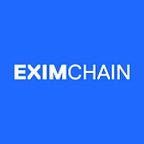Quadratic Voting + Smart Contracts = Powerful Governance Model
The major political elections that have taken place across the world throughout the last year have sparked interest among many of us to consider: how can blockchain be incorporated into our voting processes to increase their fairness and efficiency? See Fred Wilson’s post on Voting on the Blockchain, for example. As Wilson describes, blockchain technologies are, “good at many things that require security, accountability and rules.” Simultaneously, Sunoo Park and Ronald L. Rivest of MIT propose, an ideal voting system has four key properties: verifiability, secrecy, robustness against false accusations, and usability. It follows then that combining an ideal voting model with blockchain technologies has the potential to produce very effective, secure governance systems. Today, we will explain how we, Eximchain, are the first project in the blockchain space to implement a combination of an innovative voting model, Quadratic Voting (QV), and ethereum-based smart contracts. Our platform, secured by this governance system, empowers SME buyers and suppliers to create supply chain optimization tools and gain access to affordable credit.
Quadratic Voting is a better way to make collective decisions that avoids the tyranny of the majority by allowing people to express how strongly they feel about an issue rather than just whether they are in favor of it or opposed to it. — Glen Weyl, inventor of QV
On the most general level, QV enables a group of users to jointly choose a collective good for themselves. Each user can purchase votes for or against a proposal by paying into a fund the square of the number of votes that he or she buys. The money is then returned to voters on a per capita basis. While QV has thus far been studied primarily in the context of deciding political elections and creating public policy, it also has practical applications for securing decentralized systems for finite periods of time.
At Eximchain, we are developing a governance model that combines QV with ethereum-based smart contracts to provide practical, finite time security guarantees over the consensus mechanism. Our proposed QV based governance model allows for a series of checks and balances between nodes. We are optimistic about the potential of this practical application of QV and are excited about the opportunity to put this governance model to work to contribute to the growth of SMEs globally. To join the conversation and learn more about this first-ever experiment of Quadratic Voting on ethereum-based smart contracts, join us on Slack.
